Many (many) summers ago, I was camping with friends at Hurricane Ridge in Olympic National Park when a group of astronomy buffs showed up at the Visitor Center and invited visitors to view the stars through their assortment of high-powered telescopes. I’ll never forget the amazement I felt as I peered through one particularly impressive scope and focused in on Saturn, its rings clearly visible. I wasn’t looking at a photo or video or otherwise mediated image of the iconic planet. No, I was LOOKING AT SATURN.

SATURN!!
That long ago weekend stands out for other reasons, too: a particularly beautiful, remote hike that required a tense drive along a one-lane logging road edged by miles of 2,000-foot drops; nights spent camping under massive Douglas Firs and Western Red Cedars with the scent of evergreen needles on the breeze; and an early morning ferry ride back to Seattle that featured a pod of Orcas trailing us across Puget Sound. So many lovely things happened that it felt afterward like I had spent a long weekend inside a Mary Oliver poem. But Saturn’s rings? Wow. Just, wow.
Fast forward to earlier this month when a Facebook invitation popped up from a local organization to come to a park not far from our house and stargaze through our regional astronomy club’s scopes. I told Kris and the girls about it immediately, envisioning a memorable few hours when the far reaches of our solar system would be revealed. The event started at 6:30 p.m. on the Saturday of Mother’s Day weekend, which to my mind meant it might be the perfect family outing. The girls were up for the adventure, especially when they learned we might be able to see planets as well as stars.
As the day in question drew near, I grew increasingly excited. In high school, I took astronomy as an elective senior year and spent every Wednesday afternoon at the Kalamazoo Planetarium, watching the constellations shift slowly overhead. Now I would get a chance to share the joy of stargazing with my kids. I couldn’t wait.

The twins at a recent soccer game
And then, reality struck in the form of four soccer games in twenty-four hours, plus a birthday party scheduled smack dab between the final two games on Saturday afternoon. By the time we headed home, it was 5pm and the littles were practically limp with exhaustion and the usual post-birthday sugar crash. Stargazing at a park twenty minutes from home would be too much for our worn-out kids, Kris and I agreed. Probably it would be better if we all just stayed home and cuddled up for our weekly movie, which we’d missed the previous night due to the first soccer game of the weekend.
Alex, the oldest at eight, said, “But you were so excited, Mimi! You could always go to the park without us.”
“But then I would miss movie night,” I pointed out.
“It’s okay, Mimi. Really. You should go if you want to.”
I did want to. I wanted to stare through high-powered telescopes at the night sky over Puget Sound on an unseasonably warm, perfectly clear spring night. But as I pictured the night and its possibilities, I realized that what I wanted most was to share the experience with my family. I imagined leaving the house to spend the evening with strangers while Kris and the girls snuggled up on the couch with the dogs for family movie night on Mother’s Day weekend… and, yeah. I really didn’t want to miss out on that experience, either.
“I have a better idea,” I said. “Why don’t we take movie night outdoors?”
“What do you mean?” the girls asked.
“I mean, maybe we could watch a movie on our front porch.”

The light in our second growth forest
Everyone readily agreed to this idea, and within ten minutes we’d gathered together couch cushions, sleeping bags, and blankets and headed outdoors to transform our porch furniture into a soft, comfy viewing platform. There on our covered front deck we watched Happy Feet on the laptop, the five of us—and the two dogs—snuggling and laughing together while the sun set and the half-moon rose over the second growth forest that borders our property, yellow light angling low through the moss-bedecked branches of the fir and cedar trees who, after a decade and a half, feel a lot like friends.
As I sat on the deck with my family around me, I couldn’t help thinking of the evening as a metaphor for parenthood. Earlier in the day, I had felt pulled in two directions and had been certain I would have to choose between self and family. But when it came time to make that choice, I’d discovered that in this case, self and family were inextricably intertwined.
What’s in a Name?
The next morning, Mother’s Day, the kids piled into our bed as usual and we snuggled some more, alternately whispering (the kids), reading (the moms), giggling (the kids), and wincing (the moms) at overly loud, out-of-tune singing.
“I can’t wait to give you your present, Mimi,” Alex said when we finally decided it was time to start the day.
“Me too!” Ellie called, with Sydney soon following suit.
“You three are so sweet,” I said, ruffling Alex’s hair and smiling at the twins as I slid out of bed.
This was the first year that Mother’s Day would be my day and not Kris’s. At least, the first year that the kids would remember it as such. For the first couple of years after we had Alex, Kris and I shared Mother’s Day. But once Alex was old enough to start preschool and be directed by an adult outside the family to make cards and other gifts, we decided to split up Mother’s and Father’s Day so that each of us could have a special day of our own. Otherwise, neither of us would get to be truly pampered by the rest of the family. Kris, at my urging, would have Mother’s Day. I, in turn, was happy to have Father’s Day—or Mimi’s Day, as the kids immediately christened it.

The day of happy mothers…
That worked until a couple of years ago when Mother’s Day fell on Kris’s birthday. Maybe in the future, we could swap, she suggested. This year, we did.
As soon as Mother’s Day began, however, I realized why I had avoided claiming it: Turns out I don’t completely identify as a traditional mother. Father’s (Mimi’s) Day has always felt like a better fit, but even it isn’t quite right. My long-term ambivalence over squeezing myself into ill-fitting, heteronormative gender roles is why I struggled to find a word that adequately reflected my role in my children’s lives before and even after they were born. Kris carried our girls in her body and went through the painful, incredible, beautiful process of bringing them into the world. While I am absolutely their parent, I don’t feel like a mother like she is. Not in the traditional sense of the word.
Let me pause here for a moment and state definitively that I don’t believe that biology conveys legitimacy when it comes to parenting. I’m only saying that for me, as the non-gestational female-ish parent of children that my wife conceived with donor sperm that I helped choose, the cultural terminology around parenting is more difficult to navigate.
Part of my lack of personal connection to the word mother also arises from being nonbinary, or genderqueer. This part of the puzzle crystallized recently when my sister-in-law G. and I were discussing the various legal protections that parents like me have access to in 21st century America and, specifically, Washington State. When I told G. that my parental rights were firmly established under state and federal law but that a bigoted judge could still rule against me, she said, “But you’re their mother!”
“Eh,” I said, tilting my head sideways even though she couldn’t see me through the phone line.
“Seriously, Kate? You have to know you’re their mother!”
“That’s not what I meant,” I said. “I’m obviously their parent, and not just because the courts say I am. But mother is such a loaded term. If I don’t identify fully as a woman, then how can I identify fully as a ‘mother’ when that identity is so closely tied to biological womanhood?”
“Oh,” she said, understanding in her tone. “Got it. Well, in that case, you’re their parent, no matter what any judge says.”
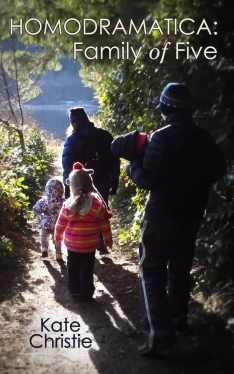 Unfortunately, I’m not sure the fact that I am one of the only two parents our daughters have ever known would help were I ever to come under the purview of a homophobic judge. Fortunately, as I explained to G. (and as I detail in my book Homodramatica), I have the law on my side. In the wake of a 2009 expansion of domestic partnership rights, Washington State began operating on a policy of “legal presumption of parenthood” that holds that both parties in a domestic partnership or same-sex marriage are presumed to be the legal parents of children conceived during the relationship. A related 2017 federal Supreme Court ruling requires all 50 states to extend the presumption of parenthood to legally married same-sex couples. This means any discriminatory ruling against my parental rights would likely be reversed on appeal, even outside our home state of Washington.
Unfortunately, I’m not sure the fact that I am one of the only two parents our daughters have ever known would help were I ever to come under the purview of a homophobic judge. Fortunately, as I explained to G. (and as I detail in my book Homodramatica), I have the law on my side. In the wake of a 2009 expansion of domestic partnership rights, Washington State began operating on a policy of “legal presumption of parenthood” that holds that both parties in a domestic partnership or same-sex marriage are presumed to be the legal parents of children conceived during the relationship. A related 2017 federal Supreme Court ruling requires all 50 states to extend the presumption of parenthood to legally married same-sex couples. This means any discriminatory ruling against my parental rights would likely be reversed on appeal, even outside our home state of Washington.
As a writer, I’m drawn to analyzing terminology, of course. Non-biological mother, non-gestational parent, nonbinary gender identity—these are all terms whose definitions literally rely on absence rather than celebrating what is present. That’s why I prefer genderqueer to nonbinary. Why I prefer Mimi to non-bio mom. When Alex was learning to talk, she came up with what she and her sisters call me, almost as if she understood even then that I wasn’t like other mothers. It’s just a bonus that the word Mimi actually means something else in a foreign language: Beloved. To me, my child-chosen parent name is perfect.
In the middle of Mother’s Day, which was lovely—my parents came over for brunch and Kris made blueberry waffles for the whole family; I got to take a walk with the girls and a good friend; another dear friend dropped by for a visit; and I fixed a broken fence panel in our backyard without injuring myself or others (BOO-YAH)—I mentioned to Kris that I felt a little uncomfortable taking ownership of Mother’s Day.
“Maybe we should declare a non-bio mom’s day,” I joked. “Or genderqueer parent day, maybe?”
“Isn’t there already a non-bio mom’s day?” Kris asked, entirely serious.
“Oh, right.” I nodded slowly. “February first.”
For those who haven’t followed this blog long (or who understandably don’t remember a post I wrote eight years ago!), February 1, 2011, was the day that Washington State began to allow non-gestational mothers to be on the birth certificate as a legally recognized parent. Twenty-two days later, Alex was born. Good timing, we’ve always thought.
“We celebrated that first one,” Kris pointed out. “Maybe we could keep the tradition going.”
And maybe, in the future, we will. Or maybe I’ll keep Father’s/Mimi’s Day. Mimi’s Day works in a way nothing else does, and honestly, I don’t mind modifying an existing holiday. As long as the kids don’t mind, either, we’ll probably keep doing what has worked in the past.

Me & the girls, Mother’s Day 2019
These types of questions usually come up for Kris and me around Hallmark Holidays, as we refer to them—culturally determined (and named) days that would otherwise remain unremarkable. Like most people, I generally wonder less about the terminology around parenting and more about how I’m actually doing as a parent. As someone with a parental role that has long been contested in courtrooms and in public opinion, I may or may not question my adequacy more than the average cis heterosexual parent. My guess? I probably do. When so many people question your fundamental rights, it’s difficult not to internalize at least some of the hate speech and underlying assumptions.
That cultural criticism is why something that happened a few months ago made me especially happy. We were trapped inside by winter weather one weekend day when the kids overheard Kris and me discussing a Facebook post making the rounds. I don’t remember the post exactly, but I do recall one of the questions: What would your kids report is something you say a lot? Kris and I were sitting on either end of the couch riffing on the possibilities—Turn off your bedroom light! No talking about farts at the dinner table! Is everybody buckled?
“Mimi says I love you a lot,” Ellie announced from the other couch, not even looking up from the picture book she was leafing through. Alex and Sydney, who were drawing at a nearby table, both nodded in agreement.
I share this story not for the knee-jerk need to prove that a non-biological parent is a valid parent, too, but because… Well. Huh. That actually might be precisely why I’m sharing this story: as a reminder both to myself and to all the countless other people like me that parenting is NOT determined by biology; that love, as the saying goes, truly is what makes a family.
Lucky for me, my daughters agree.




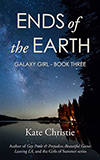
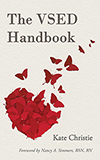


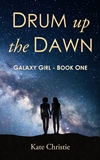
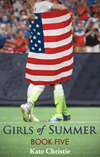
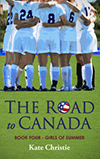
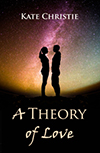








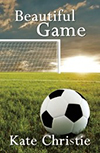

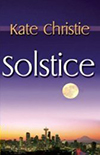
I love this. So much. Thank you for sharing. More people need to hear this!
Thanks so much! 🙂
The loveliest Genderqueer Parent’s Day story I’ve heard all week! So funny that you posted–I was just thinking about all of you yesterday.
Thanks! I was thinking about you recently, too. We must be psychic… 😉 Hope all is well down south!
Well, it’s better here in Houston than in Alabama, so I’ll take it.